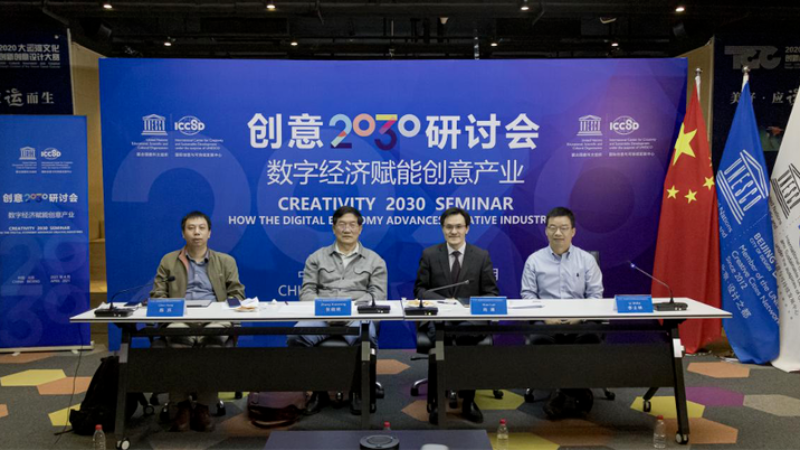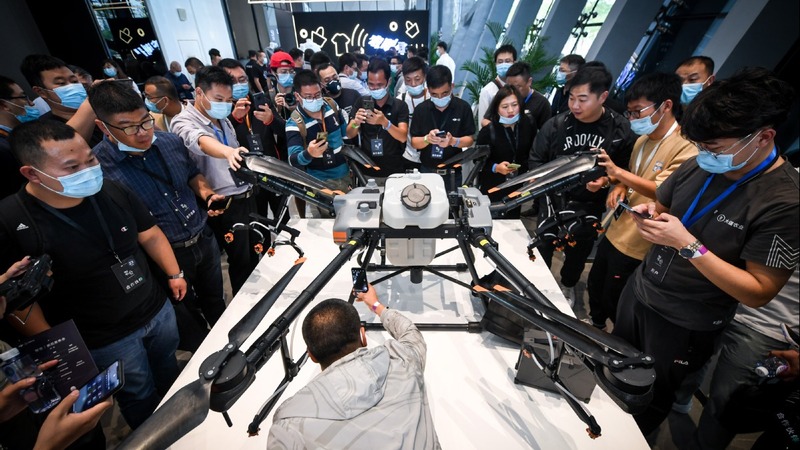In recent years, the "three-new policy", namely "new industries, new business forms, and new business models" has become the buzzword. Now it has also been applied to the digital culture industries, and the deeper connotations are waiting to be further explored.
Initiation of the "three-new policy"
The "three-new policy" was initiated by General Secretary Xi Jinping when he was inspecting Zhejiang Province in May, 2015. He was quoted as saying: "We must accelerate the upgrading of traditional industries, focus on promoting strategic emerging industries and vigorously cultivate new business forms and business models to build the new development system of modern industries."
In 2018, the National Bureau of Statistics formulated the 2018 Statistical Classification of New Industries, New Business Forms and New Business Models, in order to provide the accurate definition of the "three-new policy" and better supervise the scale, structure and quality of related economic activities. By then, the "three-new policy" had come into force with the statistic guidance.
From 2017 to 2020, the Ministry of Culture and Tourism has consecutively issued two important documents, namely the Guidelines on Promoting the Innovative Development of Digital Culture Industries and the Opinions of the Ministry of Culture and Tourism on Promoting High-Quality Development of Digital Culture Industries. The former has, for the first time, presented the brand new policy concept of "Digital Culture Industries". It pointed out that the industries have become an integral part of culture and digital economy, and described in detail the overall requirements, development trend, key areas, innovative ecosystem building and stronger policy support. The latter highlighted "high-quality development" and pointed out "six major development foundations, eight major new business forms and five major industrial ecology systems", putting "new business forms" at the core of policies on digital culture industries for the first time. The two papers have showed that the "three-new policy" mechanism centered on "new business forms" has come into being.
Interpretation on the "three-new policy"
The "three-new policy", a major initiative echoing the theme of "high-quality development"
In 2017, the 19th Session of the CPC National Congress put forward the concept of "high-quality development" for the first time, showing that China's economy was witnessing the change from rapid growth to high-quality development. High-quality development fundamentally means the vitality, creativity and competitiveness of economic growth, which are fully represented by the "three-new policy".
"New industries" mean adopting new research results and emerging technologies to develop new forms of economic activities at a certain scale. They may be directly driven by the industrial application of new technologies, or evolve from traditional industries adopting modern information technologies. "New business forms" mean that new links, new chains and new activity forms are added to the existent industries and fields with the help of technological innovation and application after the diverse and personalized needs are met in the process of providing products or services. Specifically, they are represented by operation activities based on the Internet. "New business models" are highly efficiently and specially competitive after businesses integrate and restructure the various inner and outer elements of operation in order to create value for the users and continuously make profits. In today's society, the one-stop services are among the most competitive and efficient models since they integrate the Internet with industrial innovation, and hardware with services, and meet the needs for consumption, entertainment, leisure and services in various scenarios.
Promoting the high-quality development of digital cultural industries in the logical order of precedence, "new business forms" being the new frontiers
The "three-new policy" in the cultural field highlights a progressive logical relationship, and the high-quality development of the digital culture industries should be promoted in the logical order of precedence. "New business forms", new activity forms emerging with the new demands, should be the priority. "New business models", the specially competitive business models developed from the company organizers' element integration of the new activity forms, ranks second in terms of precedence. "New industries" are the last to take into consideration. They could be interpreted as the cluster of companies with the same features of new business models and unique industrial features. "New business forms" are the basis and precede "new industries" in evolution. Thus, they are recognized as the new frontiers in the development of digital culture industries.
Logic of the "three-new policy" offering specific methods of studying high-quality development of digital culture industries
First of all, "new cultural business forms" are not part of the traditional "consumption business forms" but a richer array covering the whole industrial chain. Hence, they could serve as the starting point for studying the high-quality development.
Secondly, the evolution from new cultural business forms into new business models requires the great improvement in business operation, soundness, continuous profit making and copiable models. In most cases, new business forms are unstable and experimental, thus appearing in one spiral and vanishing in another. new business forms boast great vitality, creativity and meaningful exploration, but they may also bring unpredictable risks. To some extent, the evolution means a "dangerous jump" for businesses.
Thirdly, the evolution from "new business models" into "new industries" symbolizes the successful copying of business operation models, the clustering of the same type of companies and reaching specific industrial categories.
Problems requiring further study
Can "new business forms" be "supported" by policy intervention? A highly open, competitive and inclusive market should be the foundation for the development of cultural and creative industries. How can we support the market when it is not yet perfect?
The early stage of large-scale commercialization of new technologies is also an opportunity period for industrial upgrading. In order to seize the opportunity, policy intervention may also be necessary. Therefore, the question is what kind of policy is needed rather than whether to introduce policies.
In order to better guide the emerging industries, it is necessary to strengthen the trend prediction research and support the implementation of policies by scientific prediction.
In recent years, great changes have taken place in the development of digital culture industry. Many new phenomena are completely new to us and are all brand new problems. Therefore, we need to pay attention to the research in this field, focusing on the necessary changes of some traditional models and concepts against the new background.





